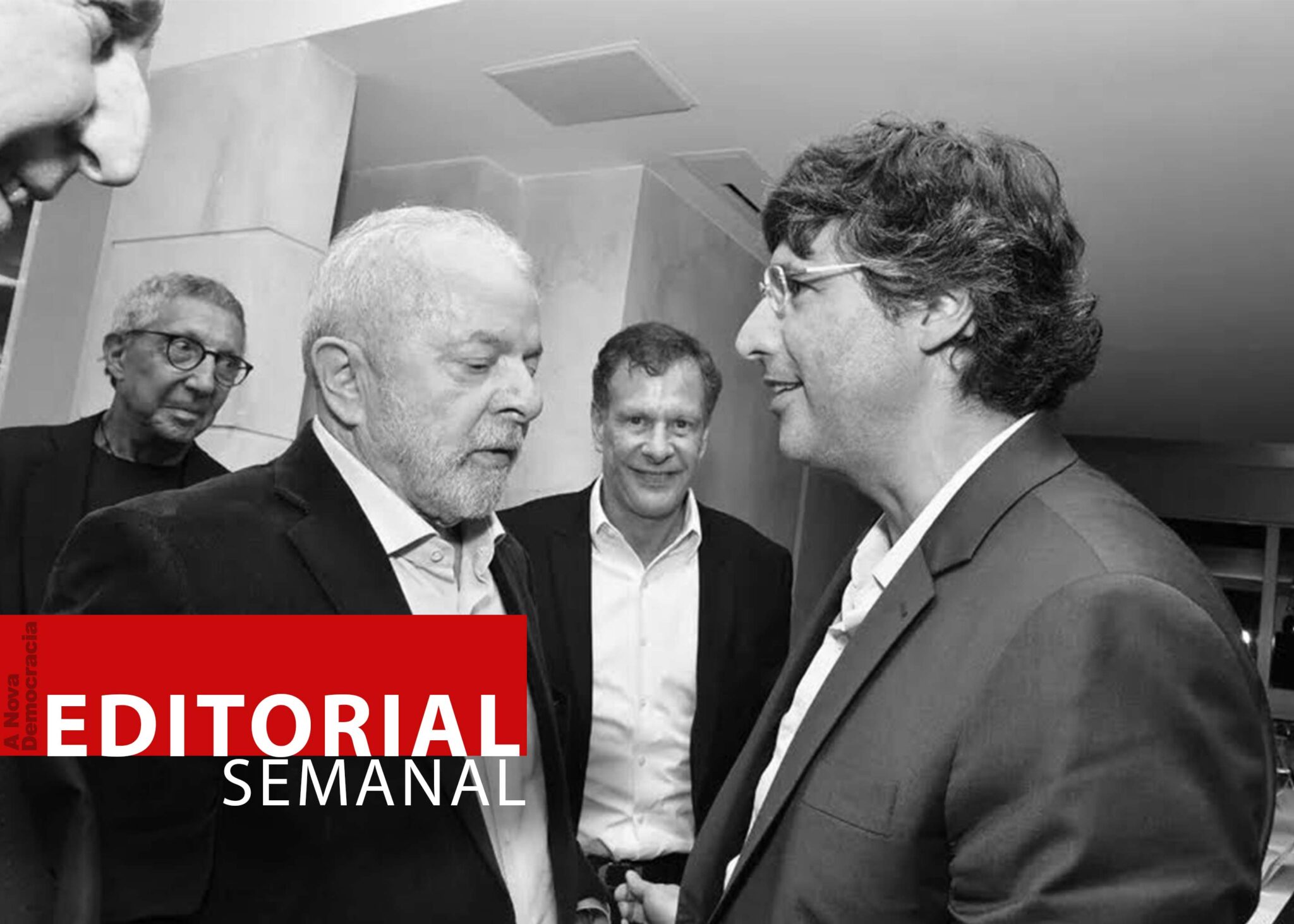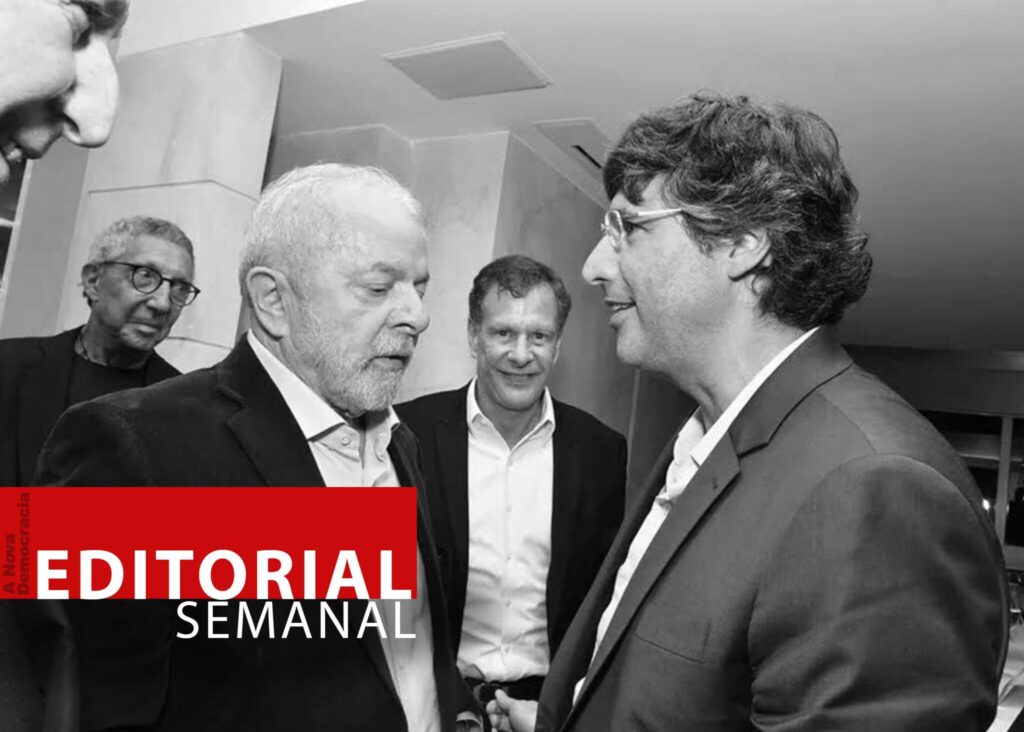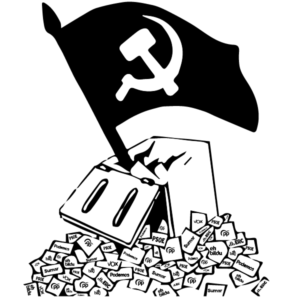
AND Weekly Editorial – The narrow perspectives of the opportunist government
We publish an unofficial translation of the Weekly Editorial of the newspaper A Nova Democracia.
Weekly Editorial – The narrow perspectives of the opportunist government
Editorial Staff of AND
04/04/2023

The latest Datafolha survey revealed that 29% of Brazilians consider Luiz Inácio’s government “bad or terrible”, followed by 30% who consider it “regular” and 38% who consider it “great or good”.
In normal situations in terms of temperature and pressure, it is expected, for the beginning of a term, that approval is higher; so much so that the current government has, together with Bolsonaro’s in 2018 ( within the margin of error), the worst disapproval for the first three months since the so-called “redemocratization” (1988). Moreover, the 29% who consider the government as “bad or terrible” is the same percentage registered in the worst moment of Luiz Inácio’s presidency, dated December 2005, when the “mensalão” affair broke out.
The survey also brought the information that 51% of those interviewed consider that the government has done less than expected in the first three months, and 50% believe that the government will keep part, but not most, of its promises (another 21% believe that it will not keep any of its promises, bringing the total to 71%).
Among the areas in which the government has fared worst, the topic “economy” stands out, being mentioned by 15% of those interviewed, followed by health and public safety (12%), and corruption and fighting unemployment (10%).
It is necessary to ponder, however, that among the poorest population the government’s positive ratings are above average: 45% consider it “good or excellent”. But it is precisely this poorest part of the population that considers that he has done less than expected (50%) and two thirds believe that Lula will keep part, but not most, of his promises, or that he will keep none at all.
In the first place, it is the political regime itself that is discredited, and therefore, everyone who takes over its management. That is why, over time, it only brings down the average approval rating of governments. Luiz Inácio does not show any capacity to reverse this situation, which narrows his room for maneuver.
Secondly, the basic masses, the poorest, although they see him as “good or great” above the general average – and this is due to the fact that he does the minimum that was not done by the scoundrel Bolsonaro -, also do not feel their expectations met, and as a result, do not nurture the government with enthusiasm. The deepest masses of our country no longer accept being governed as before. This is the trend that most increases the danger for Luiz Inácio.
He knows well that he must act as a good tightrope walker: believing himself to be a “skillful conciliator”, he needs both to attend minimally to the expectations of the popular masses in order to gain their confidence – without which he could not sustain himself – and, at the same time, he needs to establish a policy that corresponds to the interests of the international financial oligarchy, the big bourgeoisie, and the large landowners. If he met the minimum demands of the masses of rural and urban workers, he would already be thrown into the fire in which the “market” burns and destabilizes any government, the contradictions within his government would worsen, he would lose the already critical parliamentary support, he would worsen the institutional crisis and the military crisis, whose exponents – the Armed Forces High Command and the Bolsonarist extreme right – are on the lookout to catch him in his tracks. If he were to meet the demands and commitments agreed to with local and international big capital and landowners, Luiz Inácio would be completely unmasked before the masses, he would completely lose the already fragile trust that they still have in official policy, the social crisis would worsen and popular revolts would erupt, and there would be greater contradictions at the grassroots of the movements that he co-opts and also within his own government. Furthermore, as in the first case, it would also lead to the worsening – without precedent – of the political, institutional and military crisis. While we said above that the masses no longer accept to be governed as before, here is the other side: the reactionaries and opportunists can no longer govern as before.
The situation in prospect is explosive for this government and the entire old order. The longer the government wallows in the economic crisis, the narrower its room for maneuver in front of the masses and the most powerful circles of the ruling classes will become; the sooner it seeks to solve this economic crisis with the prescriptions of imperialism, the greater its unmasking will be. Going into the situation in perspective, for the people and the nation everything will depend on the position and actions of the democrats and revolutionaries.
Lenin, as a great proletarian politician and conductor in the field of practical movement, when dealing in April 1917 with the government headed by the social-revolutionary Kerensky – a “democratic” government, with socialist phraseology, which replaced the most tyrannical and miserable autocracy in Europe – said: “There is another method [of keeping the people in oppression]: It is the method of deception, flattery, fine phrases, promises by the million, petty sops, and concessions of the unessential while retaining the essential. The leaders of the petty bourgeoisie “must” teach the people to trust the bourgeoisie. The proletarians must teach the people to distrust the bourgeoisie” This latter is the task, not only of propaganda, but of practice, of true democrats and consequent revolutionaries.

